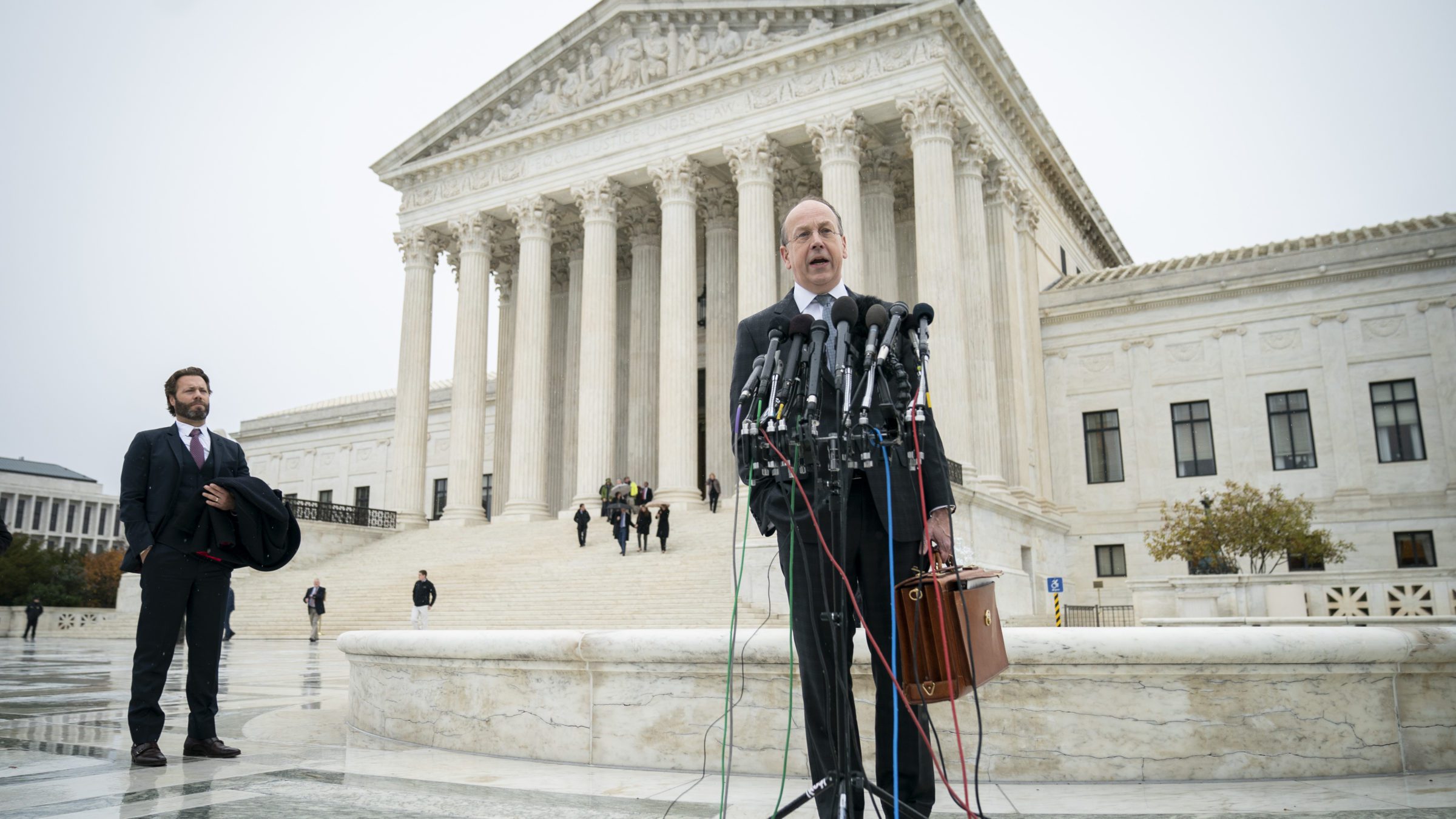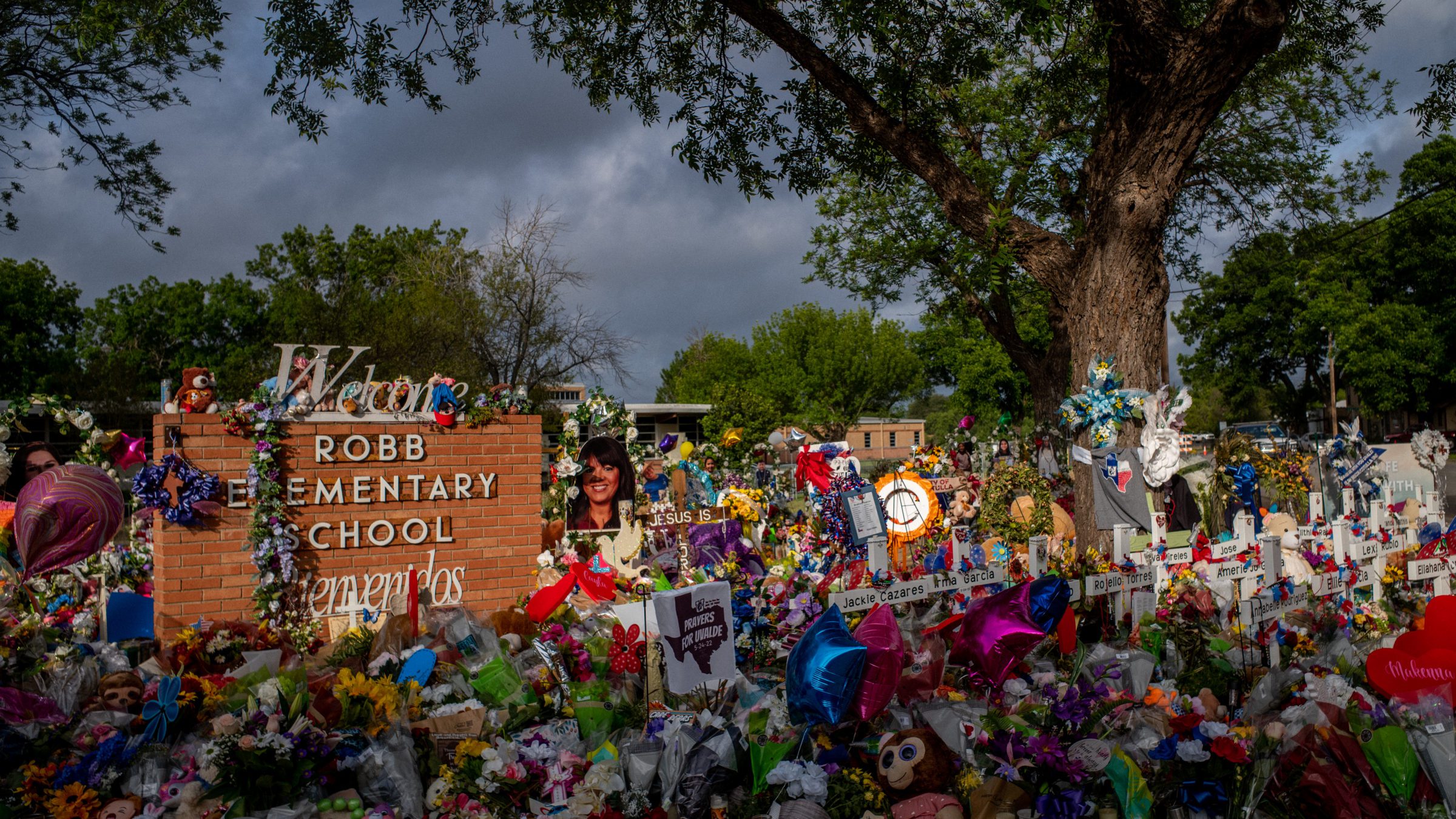Each August, tens of thousands of law students compete to woo the most powerful law firms in the nation. The firms court them back with branded sweatshirts and sumptuous dinners. Law schools tout their hiring numbers, while legal websites churn out rankings and exchange breathless gossip about firm culture. Presidential administrations pluck their officials directly from partner rosters. The legal world worships at the altar of BigLaw.
This remains true despite BigLaw’s clientele, a Rolodex of controversial players that includes oil companies, tobacco industry giants, autocratic regimes, and so on. And even after decades of carnage, elite law firms continue to represent one of the most powerful villains in American politics: the gun lobby. Some of the highest-grossing firms in the world have powered the gun industry’s fights against stricter regulations and culpability for mass shootings. As it stands, BigLaw is getting away with murder in its role in gun violence.
Perhaps the best-known power couple is Kirkland & Ellis and the National Rifle Association. Kirkland, the top-ranked firm on multiple lists with revenue over $6 billion last year, has frequently represented the group in court in recent years. Paul Clement, the former Solicitor General turned elite Supreme Court litigator, has gone to bat for the NRA since at least 2010, when the justices in McDonald v. Chicago limited the ability of state and local governments to pass gun safety legislation. Clement joined Kirkland in 2016; a few months later, the firm intervened on behalf of the NRA in the Sandy Hook lawsuits. (In his request to join the case, Clement noted his “significant” relationship with the NRA, and his “specialized knowledge” of its affairs.)
Last November, Clement argued on behalf of the NRA and other gun rights groups in New York State Rifle & Pistol Association v. Bruen, an attack on New York state’s concealed-carry license requirements. The Supreme Court was more than receptive. On June 23, the Court handed down its opinion in Bruen, gutting gun safety laws in states across the country and creating a near-insurmountable standard for many future gun regulations.

Paul Clement speaks outside the Supreme Court building after oral argument in Bruen (Photo by Drew Angerer/Getty Images)
But it’s not lonely at the top; many other firms have rubbed shoulders with the gun barons. Foley & Lardner, McGuireWoods, and Hunton Andrews Kurth filed amicus briefs for pro-gun clients in Bruen. Milbank Tweed handled the IPO for Remington’s firearms parent company Freedom Group in 2010, and is now steering its bankruptcy case.
In New Jersey, DLA Piper is fighting on behalf of Smith & Wesson to block the state’s request for company documents in a false advertising lawsuit. Williams Mullen defended gun manufacturer FN America against wrongful death lawsuits over the 2017 Las Vegas massacre. In Massachusetts, Jones Day (representing Smith & Wesson), Cozen O’Connor (representing Beretta), and Day Pitney (representing Sturm Ruger) have hopped into a high-dollar public nuisance case, defending against allegations by the Mexican government that gun companies knowingly allow their weapons to flood into the hands of cartels.
Shook, Hardy, & Bacon, based in Kansas City, has especially strong gun bona fides. The firm has represented Smith & Wesson in several cases, including lawsuits related to the Poway synagogue shooting in 2019. SHB has also defended military weapons manufacturers and fought class actions against Remington for fatal safety defects.
The legal community may not be able to stop gun violence, but it could, at the very least, impose consequences for BigLaw’s complicity.
First, law students could boycott these gun-friendly firms during on-campus hiring periods. It’s low-risk for the students, who have hundreds of associate-hungry firms to choose from, while firms’ reputations (and egos) would take a hit if they couldn’t harvest their usual crop of top-tier talent. OCI boycotts can be a powerful tool. In 2018, law students successfully pressured Kirkland to eliminate its mandatory employment arbitration clause for lawyers, inspiring an anti-arbitration movement that saw other top firms drop their arbitration clauses too.
Employees at law firms have options, too. After the May school shooting in Uvalde, Texas, thousands of Salesforce employees demanded the company end its relationship with the NRA, which uses its cloud services for marketing and fundraising. The legal profession often wrings its hands when people criticize BigLaw lawyers for their client choices, but unlike criminal defendants, corporate clients don’t have any constitutional right to representation in civil suits, and firms have no obligation to represent any particular corporation, gun manufacturers included. BigLaw already draws the line somewhere; no savvy firm would take on, say, David Duke as a flagship client. Internal pressure could help push the gun industry into that same taboo category.
Finally, a pledge by other firms not to represent the gun lobby would help cement this new norm. Many firms have already shown interest in using their considerable resources to work for gun control. In 2016, a group of firms, led by Paul Weiss, Covington, and Arnold & Porter, joined together with gun safety groups in a coalition to challenge loose gun laws and publish government research on gun violence. Even Kirkland and Jones Day, their gun clients notwithstanding, seem to have taken on some pro bono work with the Giffords Law Center. A renewed public declaration in this moment would ratchet up the tension and consequences for firms that (literally) stick to their guns.

(Photo by Brandon Bell/Getty Images)
Public pressure works. In just the past ten years, brand-name firms have refused to challenge gay marriage, declined to represent Donald Trump, and dropped Russian clients during the Ukraine invasion. Answering a legal columnist’s challenge, Gibson Dunn ended its contract with Saudi Arabia after the murder of journalist Jamal Khashoggi.
There are already signs that firms may bow to public pressure on guns, too. Until recently, Shook, Hardy & Bacon featured its Firearms and Munitions Litigation practice on its website, boasting that its attorneys had defeated two “landmark cases” in Illinois that could have held gun manufacturers, distributors, and dealers liable for mass shootings. At some point after the Uvalde shooting, the page touting the firm’s work mysteriously vanished from the site. SHB did not respond to a request for comment.
The preeminent BigLaw-guns power couple, too, is breaking up. In May, Kirkland partner Kasdin Mitchell withdrew from a scheduled speaking engagement at an NRA firearms law event on Bruen, on which she served as counsel. Either the firm had a sudden change of heart—given that nothing changed after Sandy Hook and Parkland, unlikely—or the partners got scared that the optics would lose them money.
Then, hours after the Court released its opinion in Bruen, Kirkland announced that it would no longer “represent clients with respect to matters involving the interpretation of the Second Amendment.” Per CNN, some Kirkland partners were uncomfortable maintaining the relationship going forward. Clement and a colleague, Erin Murphy, are leaving Kirkland and plan to continue their Second Amendment work, but someone else will be signing their checks.
In the wake of Buffalo and Uvalde, politicians and newspapers are already throwing up their hands and treating gun control as a lost cause. Forcing BigLaw out of the gun industry could deal a critical blow to the gun lobby. It would make it harder for gun organizations to find representation, open them up to more lawsuits, and diminish what public respect they still hold—or at least not legitimize their existence the way white-shoe firm connections tend to do.
Firms will keep representing these organizations until doing so no longer serves their reputations or fills their coffers. A little public shaming could persuade them it’s just not worth it any longer.

